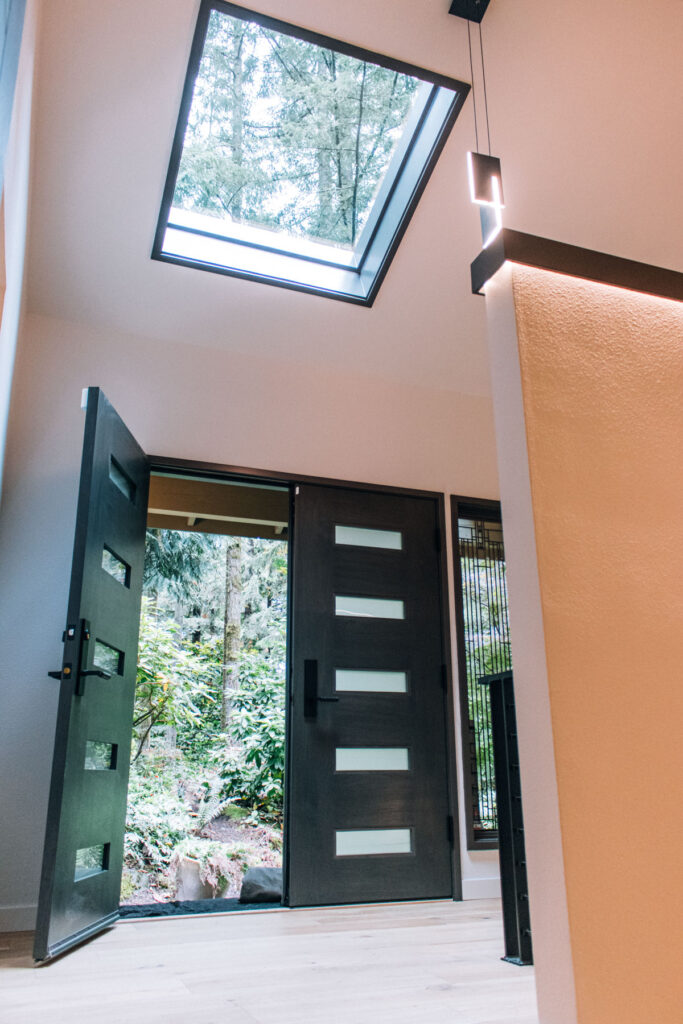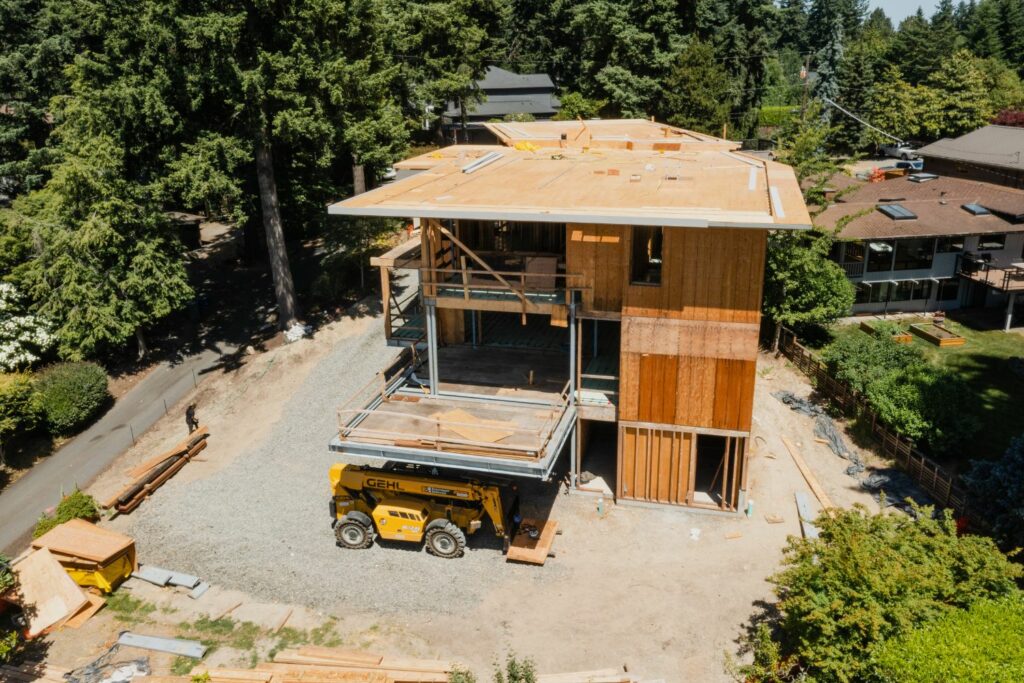When it comes to embarking on a home renovation or new construction project, hiring a reliable and trustworthy contractor is crucial. While most professional home contractors are transparent and communicative throughout the homebuilding process, there are certain aspects of the job that they might not always disclose to their customers.
We’ll explore five things your home contractor might not share with you and what question you can ask them to avoid these potential roadblocks on your path to building your dream home.

Your Home Contractor Might Utilize the Use of Subcontractors
One common practice in the construction industry is subcontracting certain aspects of the job to specialized workers or companies for services like electrical work, plumbing, or painting. Your primary contractor might not always inform you of the secondary subcontractors being used for these specific tasks. While subcontracting is a standard practice, it’s essential to ensure that these subcontractors are qualified, licensed, and insured to maintain quality and protect safety standards on your project.
What Can You Do About It?
As a homeowner, you should inquire about the subcontractors involved in your project and request information detailing their qualifications, licenses, and insurance coverage. Do your own research and verify that the subcontractors chosen for the job are reputable and skilled in their respective trades to ensure quality workmanship. If possible, see if they have reviews online of their previous work with other clients. Establish clear communication channels with both the primary contractor and any subcontractors to address any concerns, coordinate schedules, and maintain visibility throughout the construction process.

Home Contractor Might Substitute Some Materials
In some cases, home contractors might propose material substitutions during the construction process due to availability, cost, or other factors. Your home contractor may not always inform you of these replacements! Especially if they believe the change won’t significantly impact the project’s workmanship or aesthetics, or if they don’t think the costs are high enough to report these changes to you. However, it is essential for your contractor to discuss any material substitutions in advance to ensure that you’re comfortable with the proposed changes and that they align with your vision for the project.
What Can You Do About It?
Prioritize transparency regarding material selections by discussing any proposed substitutions with your home contractor. Ask for samples or specifications of alternative materials to evaluate their quality, durability, aesthetic compatibility, and/or overall cost within your project. Review and approve any material substitutions in writing to ensure that they align with your design preferences and meet the desired standards for your home renovation. At the beginning of the project, let your contractor know that all substitutions should be reported to you first and that both parties have a solid understanding before moving forward.
Home Contractor Might Adjust the Timeline
Construction projects are often subject to unforeseen circumstances, such as weather delays, supply chain issues, or unexpected complications during the build. Your home contractor might not always divulge these potential timeline adjustments to you proactively, especially if they are minor or can be addressed without impacting the building schedule. While one day involving weather problems or a week of supply chain issues might not be considered a big deal to your contractor, these delays can eventually add up if you’re not paying close attention.

What Can You Do About It?
Stay informed about potential timeline adjustments by maintaining consistent communication with your home contractor and discussing any factors that may impact the project schedule. Are you building during the rainy season? Do the subcontractors have conflicting schedules? Will applications for certain permits hold things back?
Have a regular check-in schedule to make sure things are moving along as planned. Be flexible and understanding of unforeseen delays while still holding your home contractor accountable for managing the timeline effectively. Collaborate with your contractor to develop contingency plans, address challenges proactively, and adjust expectations as needed to ensure a triumphant and timely project completion.
Your Overall Costs May Be Over Budget
Construction budgets are susceptible to fluctuations due to various factors, including material price increases, design changes, or unforeseen challenges during the build. Your contractor might not always disclose potential cost overruns upfront, especially if they believe they can manage the budget effectively without impacting the project’s progress or if they feel like they can cut back on other parts of the project without effecting the final overall product.
What Can You Do About It?
Monitor your project’s budget closely by requesting scheduled updates, tracking overall expenses, and discussing any cost overruns or discrepancies with your home contractor right away. Establish a clear payment schedule upfront, and review change orders or additional costs before approving them to prevent any budget surprises. Sustain an open dialogue regarding budget constraints, prioritize essential expenditures, and work together to explore cost-saving options without compromising the project’s quality or integrity.
Your Warranty Might Have More Limitations Than You Think
Home construction projects typically come with warranties on labor and materials to protect homeowners from defects or issues that may arise post-completion. Your contractor might not always provide detailed information about warranty limitations or exclusions, such as maintenance requirements, warranty durations, or coverage specifics. Understanding the scope and limitations of your project’s warranty coverage is essential to addressing any future issues promptly and ensuring that your investment is protected in the long run.

What Can You Do About It?
First, understand the terms and limitations of your project’s warranty coverage by reviewing all documentation provided by your contractor before anything is agreed upon. Keep detailed records of warranty information, maintenance requirements, and contact details for warranty claims. Follow recommended maintenance guidelines to preserve the warranty coverage and address any issues promptly with your contractor to ensure that claims are processed efficiently and effectively.
As a homeowner, you also play an important role in addressing common contractor practices and ensuring a successful outcome for your home renovation or construction project. By actively engaging with your contractor, maintaining clear and open communication, performing the proper research, and taking proactive steps to address potential challenges, you can empower yourself to navigate the construction process effectively, protect your investment, and achieve your vision for your dream home. Remember that a collaborative partnership with your contractor based on trust, transparency, and mutual understanding is the key to a smooth and successful construction experience!
